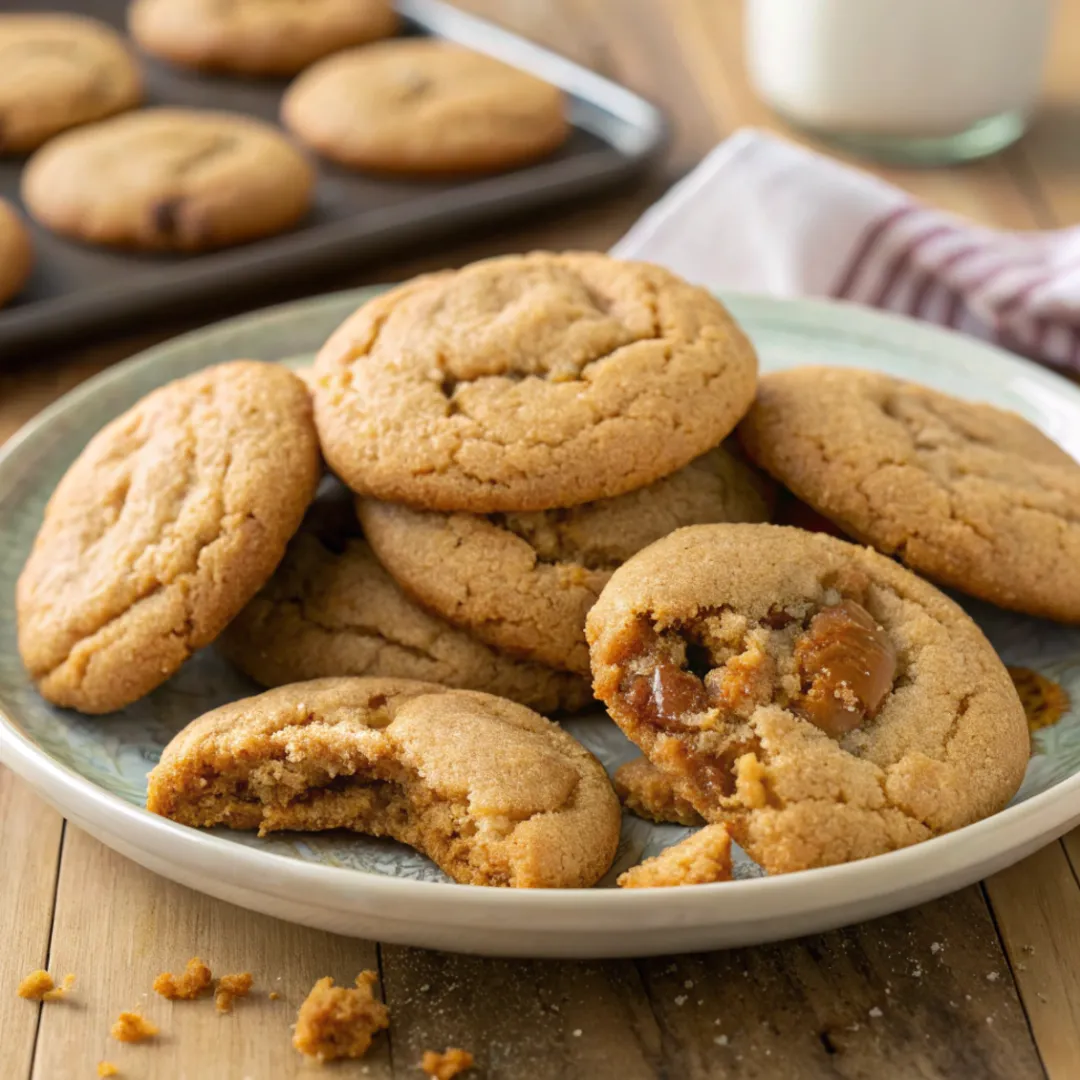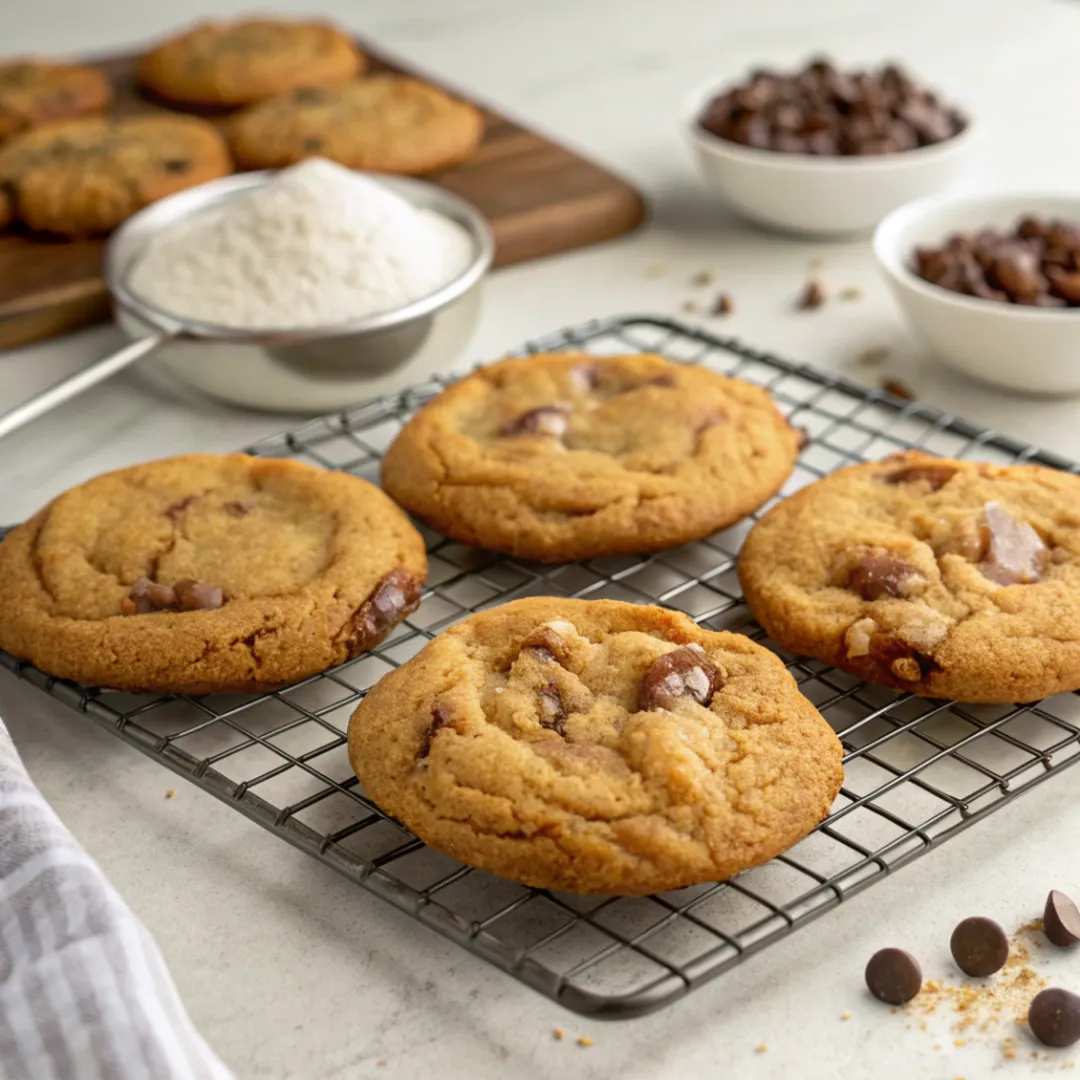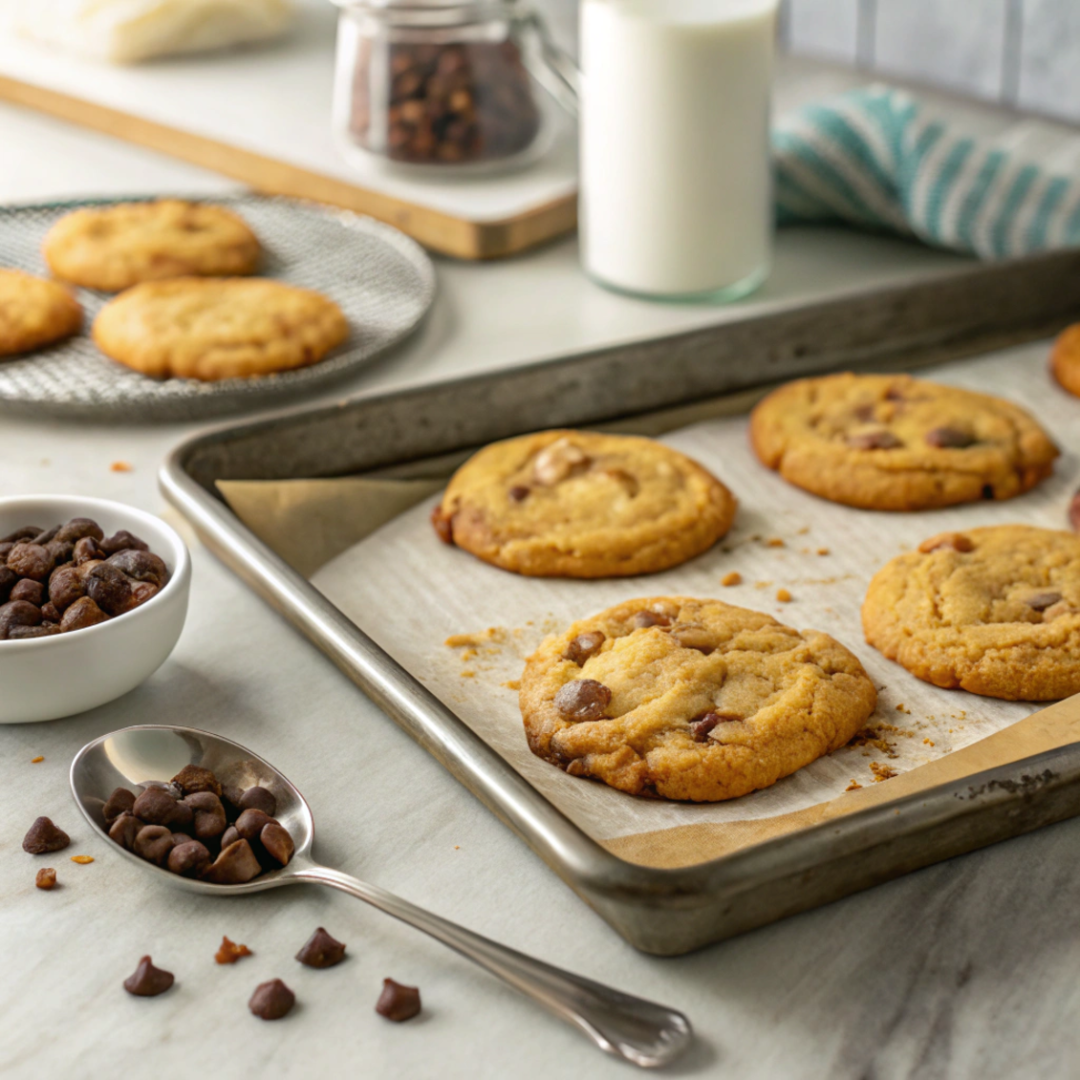🍪 20 Secrets Bakers Use for Soft, Irresistible Bites
🍪 20 Secrets Bakers Use for Soft, Irresistible Bites
Introduction: The Quest for the Perfect Chewy Cookie 🕵️♂️
Ever bite into a cookie and feel like you’ve just discovered heaven? Soft in the center, slightly crispy on the outside, and packed with that moist, bendy texture that keeps you coming back for more. If you’ve ever asked yourself, what makes cookies more chewy, you’re in the right place. That perfectly chewy bite isn’t luck—it’s all about science, ingredients, and technique.
In this ultimate guide, we’ll break down everything from flour types to secret ingredients that top bakers swear by. Whether you’re making chocolate chip, oatmeal, or sugar cookies, understanding what makes cookies more chewy will change your baking game forever. Ready to get gooey? Let’s dig into the delicious science of chewy cookies. 🍪🔬
🔬 Understanding the Science Behind What Makes Cookies More Chewy
Let’s start with some kitchen chemistry. 👨🔬 Cookies aren’t just flour, butter, and sugar—they’re a chemical equation. To understand what makes cookies more chewy, you need to think about moisture content, sugar structure, fat distribution, and heat.
💧 The Role of Moisture in Cookie Chewiness
Water is a big deal in baking. When you want that chewy texture, moisture is your best friend. Using ingredients that retain or attract water will keep your cookies soft and bendy instead of crispy and crumbly.
✅ Key Takeaway: More moisture = more chew.
🧂 Ingredients that help:
- Brown sugar (contains molasses) 🟤
- Butter (has water content) 🧈
- Eggs (add structure and moisture) 🥚
💡 Pro Tip: Avoid overbaking! Even a minute too long in the oven dries out cookies fast.
⚗️ How Ingredients Interact During Baking
Let’s nerd out a little. When cookies bake, sugars caramelize, fats melt, and proteins set. If you’re not balancing these reactions properly, your cookies might spread too much or get dry and crunchy.
🔥 The Maillard Reaction (the browning that adds flavor) works better with the right sugar and fat combo—a big part of what makes cookies more chewy.
🍪 Think of it like this: the perfect chewy cookie is a symphony of fat, flour, and heat… and you’re the conductor.
🍯 Sugar Secrets: What Makes Cookies More Chewy Starts with Sweetness
Not all sugars are created equal. If you want to know what makes cookies more chewy, start with the sweet stuff. The type of sugar you use plays a huge role in the final texture of your cookie. What Makes Cookies More Chewy?
👑 Why Brown Sugar Reigns Supreme
Brown sugar is the king of chewy cookies. Here’s why:
- It’s made with molasses, which holds moisture 🌊
- It’s slightly acidic, which helps activate baking soda ⚗️
- It adds a deeper, caramelized flavor that’s irresistible 🍬
📝 Chewy Cookie Tip: Replace white sugar with 100% brown sugar for ultra-soft cookies.
⚖️ Granulated vs. Brown Sugar: Which One Wins?
White sugar makes cookies crispier because it melts fast and helps them spread. Brown sugar, with its molasses content, keeps cookies moist and dense.
👎 Using only granulated sugar = thinner, crispier cookies
👍 Using only brown sugar = thick, chewy cookies
💡 Try this ratio:
50% brown sugar + 50% granulated sugar for balanced chew and crisp.
🧈 Fat Matters: Butter vs. Shortening and What Makes Cookies More Chewy
Another major player in cookie texture is fat. Your fat of choice can make or break that soft-bite goal.
🧈 Butter: The Flavorful Moisture Booster
Butter isn’t just for richness—it also contains about 15% water, which helps develop gluten when mixed with flour. More gluten? More chew.
🌟 Butter adds:
- Flavor 🌾
- Moisture 💧
- Better browning 🔥
🚫 Why Shortening Doesn’t Help Chewiness
Shortening is 100% fat with no water. While it creates cookies that hold their shape and have a crumbly bite, it doesn’t contribute to that gooey, bendy texture we’re chasing.
If you’re serious about figuring out what makes cookies more chewy, ditch the shortening and go all in on butter. What Makes Cookies More Chewy?
🧪 Try This Chewy Cookie Combo:
⏱️ Bake Time & Temp: Timing is Everything in What Makes Cookies More Chewy
Now, let’s talk oven science. 🔥 You can have the perfect dough, but bake it wrong, and the chew disappears in a puff of dry crumbs.
⏲️ Shorter Bake Time = More Chew
If you’ve been overbaking your cookies, that’s why they turn out crunchy. Pulling cookies out when they still look slightly underdone is the move. They keep cooking on the tray even after you take them out!
💡 Set a timer for 10–12 minutes max at 325°F (163°C)
🌡️ Lower Temperature, Longer Life
Baking at a slightly lower temperature gives your cookies time to set without drying out. This helps with even baking and keeps the middle chewy.

🔥 Ideal Baking Tip:
- Bake at 325°F (163°C)
- Remove when edges are firm but centers look soft
🌾 Flour Power: Does the Type of Flour Affect What Makes Cookies More Chewy?
Flour seems simple, but choosing the right one matters big time.
🥖 Bread Flour: Hype or Hero for Chewy Cookies?
You might’ve heard bread flour makes cookies chewier because it has more protein. More protein = more gluten = more chew, right?
Well… kind of.
Tests have shown that there’s little to no difference between using bread flour and all-purpose flour if your other ingredients are dialed in.
So, unless you’re making a super thick cookie, stick to all-purpose flour for chewy results.
🌾 All-Purpose Flour: The Reliable MVP
All-purpose flour has the perfect protein content to balance chewiness and softness. Use it as your go-to unless a recipe calls for something different.
💡 Chewy Cookie Tip: Don’t overmix the flour into the dough. That can make cookies tough instead of chewy.
🛑 Continue Generating?
Would you like me to continue with the next set of headings (6–10) and keep building the full 3000+ word article?
Let me know, and I’ll roll on with the next part!


